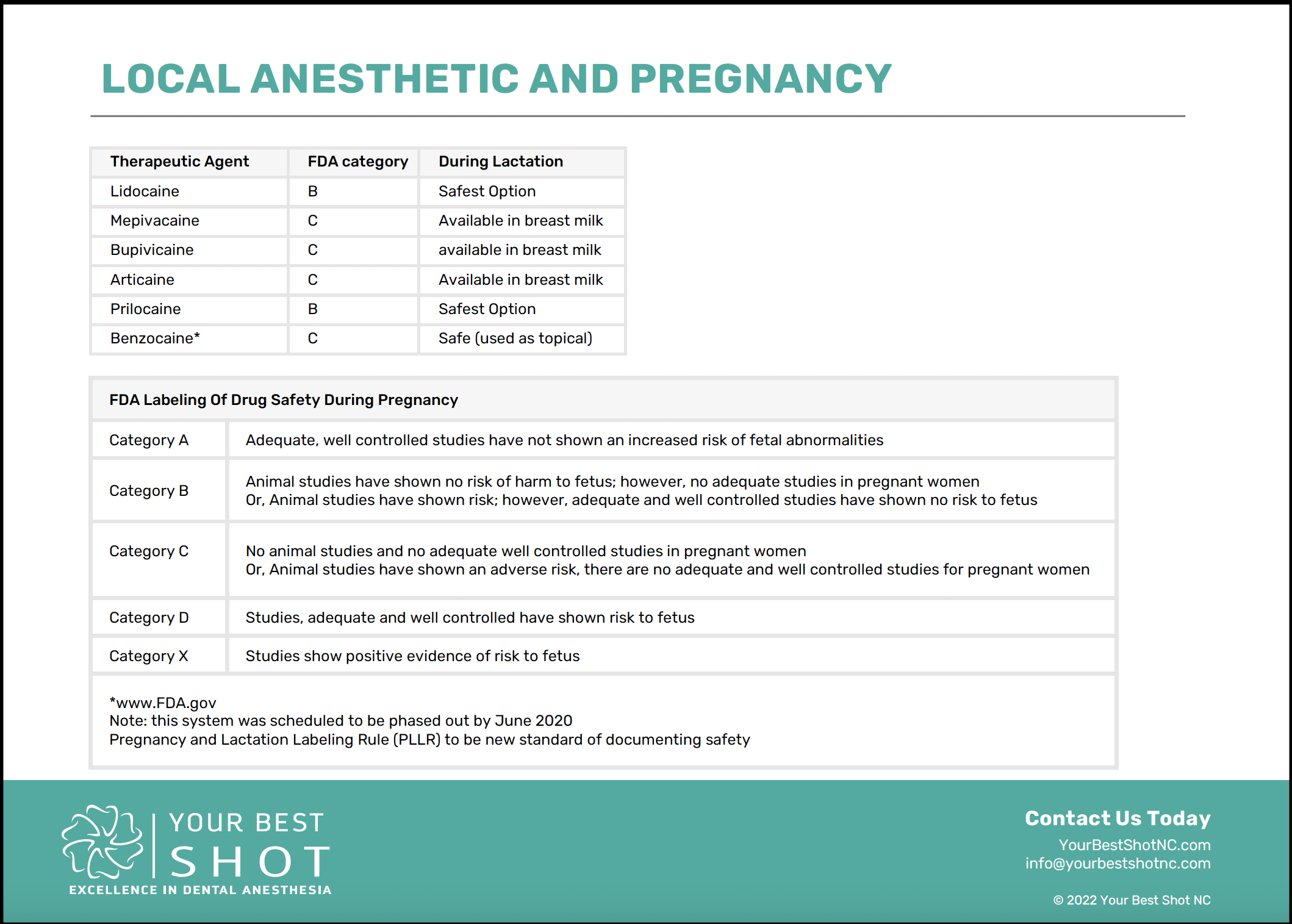
Pregnancy and Local Anesthesia
Feb 21, 2023Is local anesthesia safe for pregnant patients?
The link between pregnancy and gum disease is well established in the literature. Untreated periodontal disease is linked to low birth weight. Pregnancy gingivitis and pregnancy granulomas need treatment and that can require local anesthesia. So what do you do about pregnancy and local anesthesia?
The conservative approach to dental care is to wait until the second trimester and to choose a drug in the category B pregnancy risk classifications of drugs. However, we may not have the option to wait when deep dentinal decay is present and symptomatic. The current labeling of drug safety during pregnancy is a letter grade: A, B, C, D and X. A is the best and X means the drug is known to cause risk to the fetus. None of the anesthetics on the market are class A. The five local anesthetics available in dentistry are all either B or C. Category B means animal studies fail to demonstrate risk to the fetus, no human studies available.
Current Choices for Pregnant Patients

Lidocaine is FDA category B
Prilocaine is FDA category B
They are the safest choices available for pregnancy and local anesthesia. Lidocaine is a staple in most offices and is easy to access. Prilocaine is the other category B choice. Prilocaine is sold under the trade names Citanest and Citanest Forte. The remaining local anesthetics on the market are FDA category C. This means, animal reproduction studies have shown adverse effects on fetus and no human studies are available. This is not an absolute contradiction; however, if you choose to use any of these three drugs on a pregnant patient, you must consider potential risk to the fetus.
Articaine is FDA category C
Bupivacaine is FDA Category C
Mepivacaine is FDA Category C
This grading system published by the FDA, was scheduled to be phased out by June 2020 and the new system Pregnancy and Lactation Labeling Rule (PLLR) was to be the new standard. COVID hit and this was pushed to the back burner. I do not know when the new labeling system will come into effect.
Take home message: Lidocaine and Prilocaine are the better choices when you have a pregnant patient that needs local anesthesia for dental care.
What is best choice of local anesthesia for women who are nursing?

The answer is different if you ask the FDA or if you look at the package insert. Per the individual package inserts provided for Lidocaine, Carbocaine (mepivacaine) Marcaine (bupivacaine) and Citanest Forte (prilocaine), all four recommend to “exercise caution” when administering local anesthesia to a patient who is nursing. Septocaine (articaine) was the only package insert to recommend to pump and dump for four hours after administering. This is because articaine has a half-life of 44 mm and the estimated elimination time is 3.6 hours.The other four anesthetics have an estimated elimination time of 8 to 14 hours.
What does the FDA say about local anesthetics and nursing? The website lists lidocaine and bupivacaine as “safe.” Articaine, prilocaine and mepivacaine as “present in breast milk” and to use caution. My recommendation for my pregnant, nursing, and trying to get pregnant patients is lidocaine. Should I have difficulty getting adequate anesthesia for a nursing patient, I will reinforce the cartridge of lidocaine with articaine and advise to pump and dump for four hours.
Communication is key. Informed consent requires that you educate your patient. I give my nursing mothers the choice between lidocaine and articaine. I explain that lidocaine is safe; however, they have the option to use articaine. Should they choose articaine, I recommend they “pump and dump” for four hours. Pregnant and nursing mothers need appropriate dental care for their health and the health of their children.
The following chart is for you to keep in your treatment rooms. (right click - save image)
Good luck!

Learn more at a dental hygiene anesthesia course near me.


